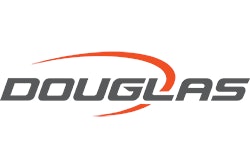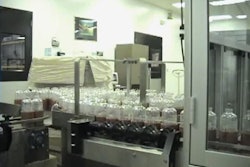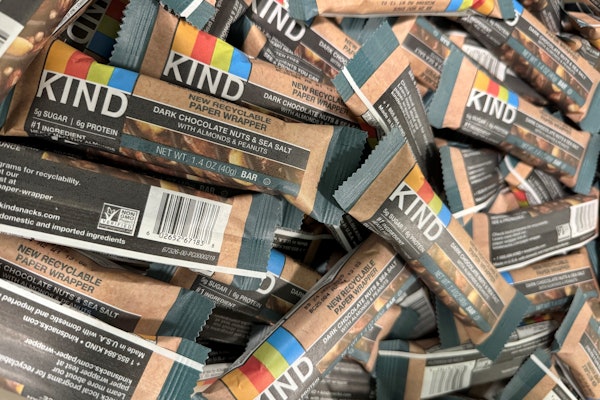PA:Cord: Today, when you think of programming a packaging machine, you might think of many hundreds of lines of PLC code. This is already changing to a more modular approach referred to in computer science as object oriented programming. Today's most advanced machine builders are developing modular machine control programs using the IEC 61131 standard languages.
In a few years, machine developers and maintainers won't be coding in the IEC languages, they'll be working one level above, describing the behavior of the different parts of the machine.
This will be more a process-related language than the computer languages with which we define processes today.
In this environment of packaging technology software modules, the IEC code will be generated automatically.
PA: Can you give us an example?
Cord: Let's say you have a machine infeed module with 3 servo axes, a homing sensor and the associated mechanics. The software to operate this subsystem will be defined as an infeed module in the vendor's software library. The software object will provide both a functional description and a structural description of the machine.
From a software engineering point of view, you can describe the entire machine and its behavior in terms of these modules.
PA: Isn't this kind of modularity one of the objectives of the Make2Pack initiative?
Cord: Yes, this builds on Make2Pack, which will become the ISA-88 and corresponding IEC 61512 standard's Part 5. It also builds on the IEC languages and the ELAU programming template we know today which are leading in the direction of object-oriented programming.
Some major players in consumer products in the U.S., Canada and Mexico are purchasing machinery using this approach specifically because we're already implementing the Make2Pack principles today.
PA: Does this mean that control system programming as we know it today is going away?
Cord: Think of the majority of machine development as engineers using a software toolbox, with a small number of specialized software engineers on staff as the tool makers.
This is in keeping with packagers' needs for more standardized, maintainable software. If every new project starts from scratch, the programs are not consistent and they become difficult to maintain for anyone but the original programmer. This is why the reusability aspect of modular software is so appealing to packaging machine end users.
PA: But it seems as if it should be just as powerful to OEMs who need to debug, validate and maintain their control software.
Cord: Of course, you're right. Once a machine builder constructs a modular foundation, engineering time to develop and test a machine's control program can be reduced by 50% to as much as 80%. This has been documented by OEMs such as Douglas Machine and Hamba Filtec.
PA: And that would also reduce TCO for the end user.
Cord: Absolutely, and we hear a lot of users wanting to outsource maintenance to third party providers. This business model is only practical if the programs are modular and therefore make it easy to visualize, understand and diagnose the system.
PA: Does modularity also lend itself to recipe-based changeovers?
Cord: Yes, it's really essential. Fast pushbutton changeovers, tool-less, often with automated adjustments, are the future. We see secondary packaging machinery in the beverage market, for example, that must be equipped to handle 20 or more format changes routinely. And the expectation among the soft drink makers is for 30 second changeovers, not 3 hour changeovers.
To change formats, and to parameterize an existing recipe to a new format, you don't want to work in long ladder logic subroutines. It's too slow and prone to errors. You want a plant floor engineer or an operator to download the new recipe, or to modify a recipe by filling in the blanks, with prompts to avoid errors and with electronic verification of who changed what.
PA: As I understand, these are all developments on a five-year horizon, or 2011. What should we expect in the year ahead?
Cord: A healthy degree of software modularity is available here and now, and has been since the late 1990's. We've continuously expanded the functionality of our EPAS-4 modular programming template, now with Version 20. These include new software libraries with IEC 61131 compliant software objects that handle all the major functions of form/fill/seal, capping, labeling and various robot configurations. We have some 400 software objects available already, which means much less programming from scratch.
So, the foundation for modular, maintainable, simplified software structures already exist. We are also working on graphical programming systems, editors and simulation tools that will simplify development on our way forward.
PA: Two years ago, ELAU won a Control Engineering Editor's Choice Award for the PacDrive SCL integral servo motor/drive technology. What's new on the actuator side?
Cord: The SCL is a form factor purpose-built for liquid and specifically beverage packaging applications. The technology distributes motor drive componentry onto rotary carousels, making power, signal and network connections much simpler. It's really taken over the rotary filling, capping and labeling machinery markets.
What's new is the PacDrive Aseptic SCL, a stainless steel servo module for use in sterile environments to withstand caustic cleaning agents.
But the real story, the really big news, will be a new class of Intelligent Servo Module that will be revealed at PACK EXPO in October.
PA: Really, you're going to leave us hanging?
Cord: Please, watch this space, you'll see an announcement in the weeks leading up to the show.
For more information, visit www.elau.com or email [email protected].






























